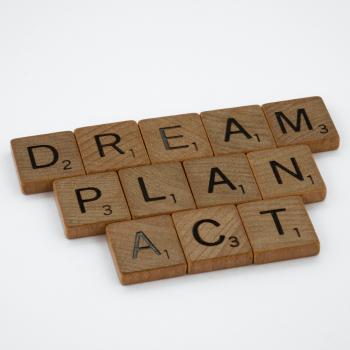Our emotions belong to us. As much as we try to pawn them off on others, they are truly ours. They cannot be properly transferred or ignored. One of the most difficult things about being human is taking ownership of our emotions and handling them appropriately.
One of the ways we try to avoid this is by blaming our emotions on others. We say things like “They made me angry” in order to avoid taking responsibility for how we feel and to cure our challenging emotions as quickly as possible. People and circumstances do not force us to feel certain emotions. But they are triggers. There are things that happen to us, certain words or phrases or insults, that can be a catalyst for awakening high levels of emotion within us.
The way we think about these triggers helps us to approach emotions in a more proper way. It helps us to sift through the truth and make better choices. We cannot help our triggers, to some degree, but being aware of them and the role they play will help free us to take ownership of our emotions and our responses to them.
The Naming

The first thing we need to explore about triggers is naming what they really are. What is it about a certain person that triggers our emotion? What exactly is lurking in this circumstance that causes the alarm bells to go off.
One of the classic defense mechanisms we employ is to shield the truth behind a superficial shield. So, we may think the trigger is someone calling us a name when the real trigger is feeling un-valued. We may think the trigger is a disappointing circumstance when really it is that we feel incapable or unworthy. We may think the trigger is disagreeing with us, but it is really feeling unseen or unloved.
If we want to handle our emotions properly, we have to be able to name our true triggers. We have to know what is really setting us off. Is it that our spouse hasn’t washed the dishes or forgotten to put up the laundry or turned down sex? Unlikely. The real trigger is the associations in your head these actions imply.
Why?
Emotions are an alarm system that let us know our values are being threatened. Our triggers are determined based on our past experience with our values. Were they silenced or celebrated? How and when and why?

Connecting our triggers and our values helps us connect our emotions to our values. And connecting our emotions to our values is the key to addressing them well.
Triggers become triggers because of past experiences and associations. What our current girlfriend does can incite an emotion because of what a past girlfriend did. The actions of our friend today could be a trigger because we remember our value being threatened by a similar action from our father in childhood. Even if the actions are in different contexts with completely different motives and intents, this reality remains.
Emotions are hard. They are wild and untrustworthy. They need the truth to temper them and keep them from running amuck. They need a why, a reason, a value, to nail them down and put them in their proper place.
Respond

The greatest mistake we make when it comes to emotions is that we react to the triggers rather than respond to the emotions. We lunge at the people and circumstances that we blame for our emotions rather than doing the hard work of discovery.
Sometimes a trigger is an injustice that needs to be addressed. Sometimes it is an innocent bystander to the complicated narrative of our soul. Sometimes it is an ignorant and neutral entity. No matter what, it is much easier to try to address the trigger than to try to address the emotion within us. External fixes are not as vulnerable, as dangerous, as internal ones.
Emotions can be really helpful to our lives. But only if we address them with truth. By and large, our emotions are an issue of character and value rather than people and circumstances. The key to emotions is not the triggers but the stewardship within. We heal not by demanding our triggers change but by understanding them and making new choices.
















